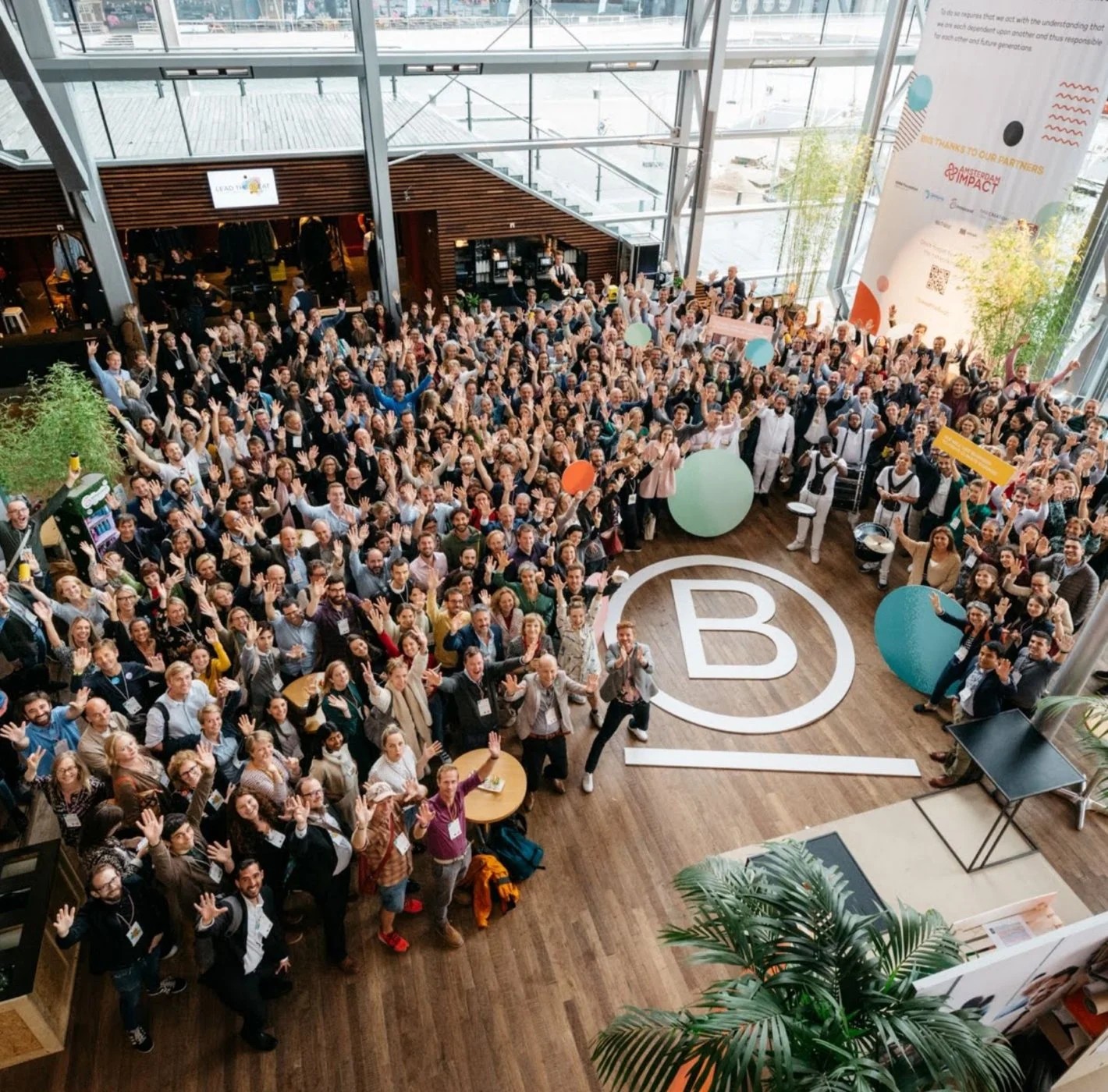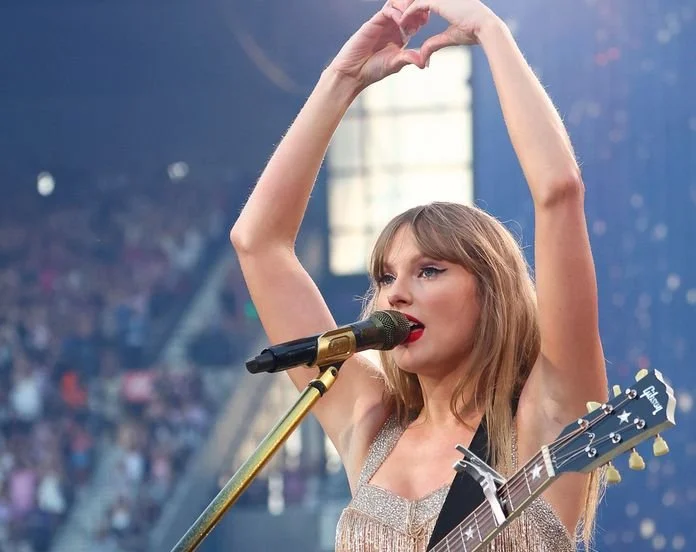The Good Sauce #4
This is your monthly source of The Good Sauce, your go-to for the good, green and conscious stuff with insights into current ethical sourcing and sustainable manufacturing news, events, innovations and trends.
How B Corp Is Revolutionising the Fashion Industry
Image Source: B Corp
The fashion industry’s response to its ugly business-as-usual environmental and social impact, is reaching a need for critical change. Thankfully, Certified B Corporations (B Corps) are at the forefront of a revolutionary switch, developing innovative ways to tackle global challenges like waste, carbon emissions, and ethical labor practices. As a proud B Corp, Direct To Source is part of this movement, redefining how fashion brands source, produce, and deliver sustainably.
Setting New Standards in Fashion
Since it began, the B Corp movement has welcomed numerous trail blazing businesses challenging the fast fashion status quo. These companies don’t just prioritise profits—they balance purpose and performance, making meaningful strides toward a more equitable future for the planet and it’s people.
How Direct To Source Drives Change
At Direct To Source, our B Corp status means making measurable steps to improve the sourcing, manufacturing and reporting for our fashion brand clients worldwide. Here’s how we’re striving to be part of the solution:
We provide eco-friendly materials such as organic cotton, recycled fabrics, and FSC-certified paper for supply chains, helping brands minimise environmental impact.
From traceable supply chains to ethical partnerships, we prioritise full visibility so our clients can stand confidently by their sustainability claims.
Encouraging brands to think beyond the product lifecycle, we help implement waste-reducing strategies like recyclable and compostable packaging.
We collaborate with factories and suppliers that uphold ethical labor practices, ensuring fair wages and safe conditions for workers.
By working with carbon-neutral delivery methods, we challenge brands to rethink how they operate.
As a member of the B Corp community, we’re excited to help fashion business reshape their product and production strategies. From design, sourcing, and manufacturing to reconsidering their online and retail packaging, we guide some of the world’s best loved brands, one conscious decision at a time.
Explore how Direct To Source can support your brand’s alignment to more sustainable practices today.
Is RPET The Right Fit For Your Brand?
(Source: Direct To Source Youtube)
The fashion industry’s plastic problem is no secret. But where some see waste, others see opportunity. Recycled polyester, or RPET, takes post-consumer plastic bottles and transforms them into fabric, offering a planet-friendly alternative to virgin polyester.
From plastic to fabric
RPET is created by breaking down plastic bottles into small flakes, which are then melted and spun into yarn. This process significantly reduces the demand for fossil fuel-based virgin polyester, which is traditionally made using crude oil and petrochemicals like ethylene and para-xylene. The result? A more sustainable solution to meet the ongoing need for durable, lightweight and cost-effective fabrics.
Why RPET matters
Polyester remains one of the most widely used fibres in the world for it’s strength, versatility and affordability. However, its reliance on non-renewable resources makes it a challenge for eco-conscious brands. RPET bridges that gap with wide-ranging benefits:
Giving plastic bottles a second life and keeping them out of landfill & waterways.
Using recycled materials consumes less energy and resources than producing virgin polyester.
Maintaining the strength, durability and flexibility of traditional polyester, making it suitable for everything from fashion to furnishings.
How to decide if RPET is right for your brand
While RPET offers significant environmental benefits, it’s not a one-size-fits-all solution. Each brand’s unique needs; such as performance, budget and sustainability goals must be considered. That’s where Direct To Source comes in.
We work with fashion and lifestyle brands to evaluate whether RPET aligns with their objectives. From sourcing certified recycled materials to collaboration on design and production for circularity, Direct To Source can help you make informed decisions that reflect your brand values and resonates with your customers.
With the right strategy, your brand can play a role in reshaping the future of fashion — one recycled plastic bottle at a time. Discover how Direct To Source can help your brand explore eco-conscious materials like RPET.
Low MOQ options save money & The Planet
Melbourne Fashion Week partnered with Direct To Source to supply their event tote bags.
Sustainability doesn’t have to mean grand moves. It can begin with small, impactful steps. For brands looking to adopt earth-friendly practices, low Minimum Order Quantity (MOQ) sustainably manufactured stock bags are a great starting point. Here’s how embracing this option can benefit both your brand and the environment:
Test the market with less risk
Low MOQs let you experiment with designs, sizes and materials without overcommitting. Whether you’re launching a new product or hosting an event, you can gauge interest without wasting excessive inventory.Fast turnaround times
Our stock bags are pre-made and locally printed, cutting down on production delays. This means your order arrives quickly making them ideal for last-minute needs or events.Reduced your carbon footprint
By choosing locally printed stock bags, you can avoid significant emissions tied to international shipping and long-distance freight, supporting more sustainable logistics.Responsible scaling
Low MOQs allow brands to take incremental steps toward sustainability. By transitioning to new practices gradually, you demonstrate that your brand values thoughtful, measured growth.Versatility for every occasion
Whether it’s a one-off event or ongoing business operations, stock bags offer a flexible solution. Through Ecoblancs, we provide a wide range of stock bag options tailored to suit your brand’s requirements while being sustainably thoughtful.
By starting small, your brand can make strides toward more responsible practices. Ready to place an order? Explore the range of stock bags at Direct To Source.
Reporting Emissions: From a “Nice To Have” To Fashions’ “License To Operate”
Image Source: Netnada
Australia is beginning a new era of corporate transparency with the Treasury Laws Amendment Bill introducing mandatory climate-related financial disclosures for businesses starting January 2025.
This legislation requires companies to report on their climate-related risks, governance and financial impacts, aligning with global standards on climate reporting.
We understand that preparing for these fashion client reporting requirements can be daunting and consume valuable time & resources. Our focus on sustainable sourcing and supply chain management positions us as an ideal partner to help your business navigate this complex landscape.
How To Prepare Today
Identify the biggest volume-items to make sustainability count.
Simplify the process from mill to market to ensure ESG compliance throughout the manufacturing process.
Form deep relationships with a global network of accredited manufacturers to ensure that you have access to accurate data, facilitating compliance with reporting standards.
Have verified assurance for your internal reporting & external communications with Product Transaction Certificates.
If you’re lacking the team-power or intel to ensure your brand is complying to the new reporting regulations, we can help deliver all the above and more.
Sources: The Australian, Netnada and ASIC
Eco Fast Fact:
Taylor Swift’s Era Impact
(Image Source: Getty Images)
Taylor Swift’s record-breaking Eras Tour is not just a cultural phenomenon but also a wake-up call about the environmental impact of large-scale events. The tour’s carbon footprint highlights the challenges industries face in balancing success with sustainability. From transportation emissions to waste management, the tour has become a focal point for discussions around more eco-conscious practices.
According to estimates, her private jet travel for the 2024 part of the tour on it’s own emitted over 511,000kg of CO₂, equivalent to the annual emissions of 122 gas-powered cars.
Swift’s team has implemented initiatives such as carbon offsets and sustainable merchandise, showing a commitment to greener operations. The 34-year-old singer has provided support to communities facing economic hardship, used her platform to talk about social issues like LGBTQ+ rights, women’s empowerment and voter registration drives.
She has also worked with local vendors to source sustainable materials for merchandise and reduced plastic usage at venues, which represents an important acknowledgement of green practices.
However, critics argue that offsets alone can’t counteract the tour’s extensive impact, particularly when it comes to global travel. This mirrors broader challenges in fashion, retail, and other industries — a need for deeper accountability and innovation.
At Direct To Source, we see this as a learning for businesses of all sizes. Sustainability is no longer optional; it’s a necessity. We see our mission to help brands rethink their sourcing and production processes becoming more important than ever and continue our dedication to offer ethical and sustainable solutions tailored to a brands unique needs while meeting critical ESG compliances.
Whether it’s transitioning to sustainable materials, reducing supply chain emissions or increasing manufacturing transparency, we’re here to ensure your business aligns with consumer expectations for a greener future.
Source: Sustainability Magazine
If you have received this unintentionally please unsubscribe below





